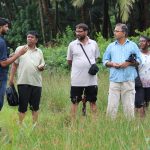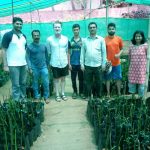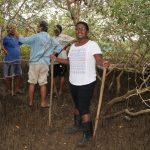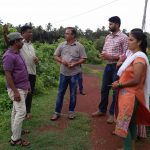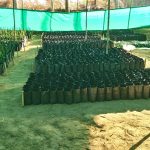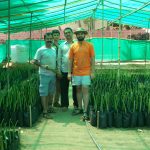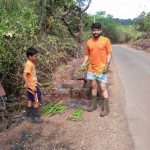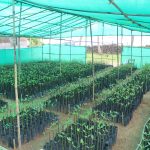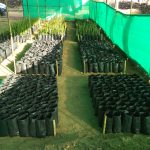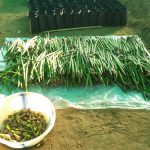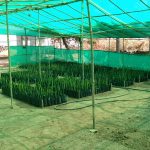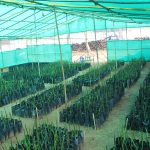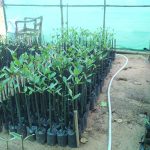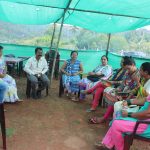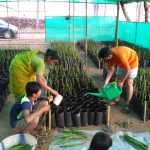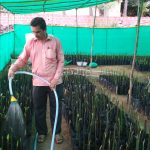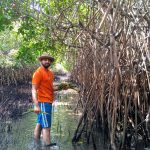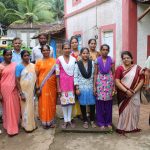Mangroves Conservation Project Sindhudurg,Maharashtra
Mangroves Conservation Project, Sindhudurg
Restoration of Critically Endangered Mangroves Species through Community Participation in Sindhudurg District of Maharashtra
Project implemented by
Srushtidnyan, Mumbai
Project Supported by
ICICI Bank
Project consultant
BNHS
Local Partners
Mangroves Cell; UNDP; Bhairavnath Group, Taramumbari Devgad
Importance: Mangroves ecosystem is considered to be one of the most biodiversity rich ecosystems on the earth. Mangroves are found in Tropical and sub-tropical inter-tidal regions of the world. Mangroves are referred as halophytic, that means salt tolerant species. It provides a wide range of ecological and economical services. It functions as nurseries for most of the fishes and other marine fauna that support the coastal and marine commercial fishing as well as the livelihood of the coastal dwelling communities for generations. The mangrove timber, fuel-wood, honey extraction, and other minor produces are some of the other important ecosystem services enjoyed by the coastal dwelling communities.
Mangroves protect the coastal shorelines from erosion, storms surges and Tsunamis. The massive root system of mangroves helps depositing the fine sediments and organic material to form its own unique ecosystem. The permanent submergence of the roots host the organisms include algae, barnacles, oysters, sponges, shrimps, mud lobsters and mangrove crabs. The dense mangrove forests harbours hundreds of bird species and some of the magnificent creatures on the earth like marsh crocodiles and tigers of Sunderban mangrove forests. Mangroves worldwide occupy only 0.5% of the coastal area of the world; it contributes 10 to 15 per cent to coastal sediments carbon storage. The mangrove soil ranged from 0.5 metre to more than 3 meters in depth accounts for 49 to 98 per cent of carbon storage permanently trapped. This role of carbon sequestration by the mangroves is now well perceived as a way to control the green house gas emissions. The scope of sustainable eco-tourism at the dense mangrove forests areas is also considered to be an advantage for the local communities.
Project Focus Area: Sindhudurga district, from the above mentioned coastal districts of Maharashtra State needs immediate attention, on the basis of area under mangrove cover and the list of species of threatened category. The recorded area of mangrove cover in Sindhudurga has the lowest area among all and at the same time it has the most species (6 species under CR and 5 under EN) categorized as threatened. Importantly, out or 6 CR species 5 and out of 5 EN species 4 are the true mangrove species recorded in Sindhudurg. This shows the importance of urgency towards restoring and propagating the mangrove population in this district. On the other hand, Sindhudurga district has 15 creek regions with the existing or potential mangrove cover sites. Since declared as Tourism District by the State Government of Maharashtra, Sindhudurga district could have models of Mangrove Eco-tourism activities by conserving the existing and restoring the potential mangrove sites.
PROJECT OBJECTIVES
- To develop the capacities of local communities in developing mangrove nursery.
- To set up a mangrove nursery with the capacity of 30000 saplings.
- To undertake mangrove plantation and handover the site to the local communities.
DESIRED IMPACT AND OUTCOME OF THE PROJECT
- Establish the importance of mangrove conservation among the local communities.
- Development of the capacities of local communities for mangrove conservation and restoration.
- Livelihood enhancement through conservation-restoration and eco-tourism on mangroves.
- Rise in mangrove cover by regular mangrove saplings propagation- plantation and restoration.
- Institutional set up for mangrove forest governance and management at the local level.


